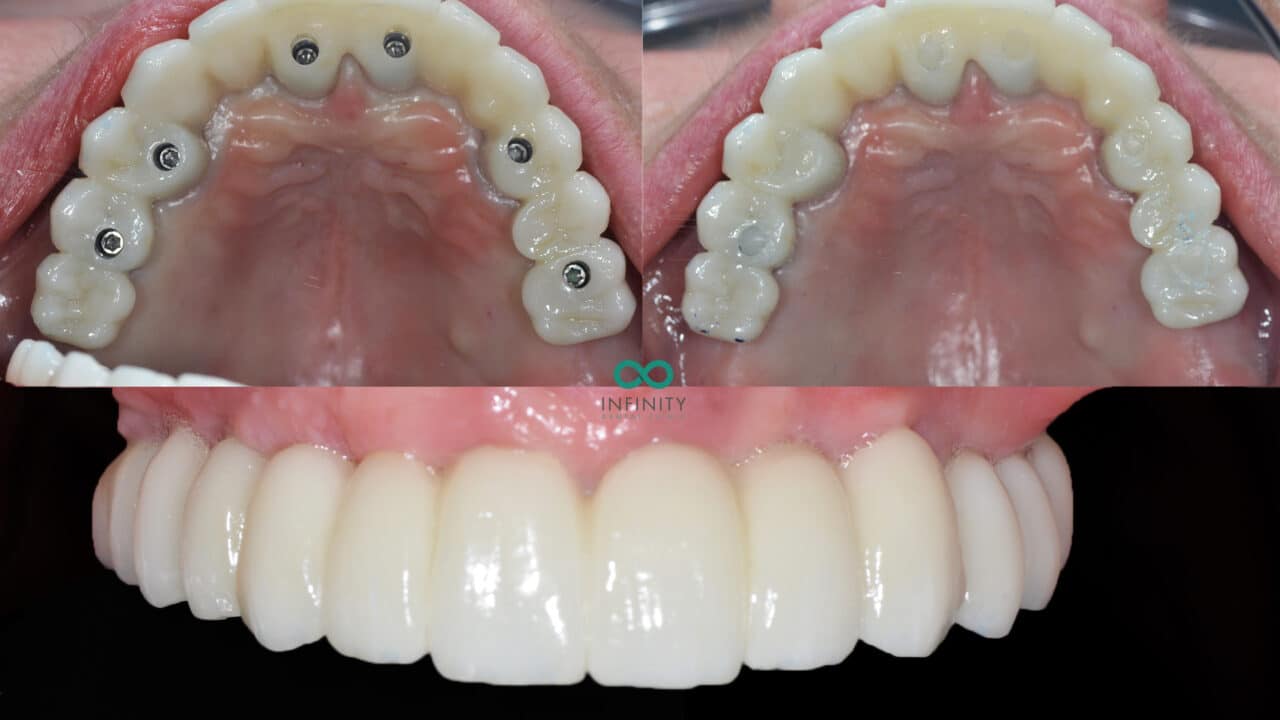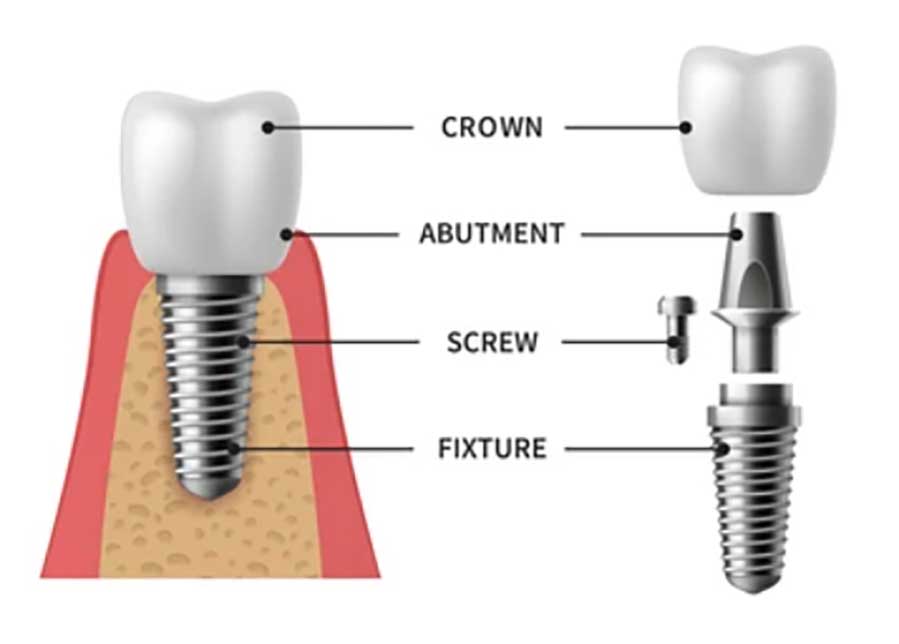Premier Dental Alexandria OH Common Dental Implant Problems and How to Avoid Them
Dental implants for folks with gum disease present a unique set of challenges and issues. Gum disease, also called periodontal disease, impacts the supporting structures of the teeth, including the gums and the bone. This condition can outcome in inflammation and infection, resulting why not try here in tissue destruction that compromises my explanation the stability of natural teeth. For people suffering from moderate to severe gum disease, reaching my review here a healthy foundation is paramount earlier than considering dental implants.

The initial step for anyone with gum disease is to seek professional therapy to handle the underlying condition. This usually includes thorough cleanings generally recognized as scaling and root planing, which aim to remove plaque and tartar buildup that harbor micro organism. In some circumstances, sufferers may require additional treatments corresponding to antibiotics and even surgery to restore gum health. Only after the gums have adequately healed and regained stability ought to one think about moving ahead with implant placement.
Dentist Centerburg OH Types of Dental Implants
Once the gum disease is managed, understanding the extent of the bone loss is essential. Periodontal disease can lead to the recession of the bone that helps the teeth, making the jaw less able to accommodate dental implants. A complete analysis, including imaging studies corresponding to X-rays or 3D scans, is crucial in determining how a lot bone is current and whether grafting procedures could also be necessary.
Bone grafting is a common procedure for those with inadequate bone quantity. During this course of, bone materials is added to enhance the existing bone structure. This can be produced from numerous sources, together with synthetic materials or the affected person's personal bone harvested from one other web site. Bone grafting not solely creates a stable base for implants but additionally encourages new bone development in the area.
Dentist Sunbury OH Dental Implants for Seniors: Considerations and Benefits
After the bone grafting procedure, you will want to give ample time for therapeutic. This therapeutic time can differ depending on the individual’s health and the complexity of the remedy. In some cases, it would take several months earlier than proceeding with dental implants. Patience throughout this stage is vital as dashing the method can compromise general outcomes and long-term success.
Once enough bone has fashioned, the dental implant procedure can start. The implant, a titanium post, is surgically positioned into the jawbone. This publish acts like a root for a replacement tooth, and over time, a process referred to as osseointegration occurs. Osseointegration is crucial for the soundness of the implant and includes the bone rising around the implant, firmly securing it in place.
Following implant placement, the healing course of continues. During this period, the gentle tissues should heal around the implant with out infection or issues. Regular follow-ups with a dental skilled are important to monitor therapeutic and address any issues which will arise.
For people with a historical past of gum disease, meticulous oral hygiene is crucial each before and after implant placement. Maintaining clear gums and teeth helps prevent re-infection and ensures the long-term success of the implants. This includes regular dental check-ups, daily brushing, flossing, and generally using antimicrobial rinses as recommended by a dentist.
Dental Implants Sunbury OH Dental Implants: Options, Costs, and Care
Factors like smoking and sure medical conditions can adversely have an effect on the success of implants for these with gum disease. Smoking, for example, can hinder blood flow and healing, whereas conditions like diabetes can decelerate recovery and enhance the chance for complications. Addressing lifestyle factors is essential to maximize the chance of profitable outcomes.
The journey of acquiring dental implants as an individual with gum disease can be complicated, nevertheless it usually results in vital enhancements in quality of life. Many individuals report increased shallowness, enhanced oral performance, and a renewed sense of confidence. Properly placed implants can restore the flexibility to eat, speak, and smile without discomfort or insecurity.
In conclusion, dental implants for people with gum disease necessitate an intensive understanding of the additional steps required to ensure success (Dentist Office Hartford OH). It entails successfully managing gum health, addressing any underlying bone loss, and sustaining impeccable oral hygiene. With the right method, people can obtain lasting results and regain perform and aesthetics of their smiles. It is important to consult with skilled dental professionals who can guide sufferers through every step of the method, making certain the absolute best outcomes
Mono Implants Hartford OH Permanent Dental Implants

- Dental implants can still be an choice for individuals with gum disease, but thorough evaluation and treatment are essential prior to the process.
- Addressing gum disease typically includes deep cleansing procedures, such as scaling and root planing, to minimize back irritation and promote gum health.
- A multi-disciplinary approach is commonly beneficial; collaboration between periodontists and oral surgeons can enhance outcomes for patients requiring dental implants.
- Smoking and poor oral hygiene can exacerbate gum disease and compromise implant success; cessation and improved care are essential for optimum outcomes.
- Bone density assessment is essential, as superior gum disease can result in bone loss, influencing the type of implant and placement methods used.
- Implants positioned in areas affected by gum disease might require further help like bone grafting to ascertain a steady foundation for the implant.
- Regular follow-ups could additionally be needed to watch gum health after implant placement, guaranteeing that the healing process is continuing with out issues.
- Patients with a historical past of gum disease may have a better risk of peri-implantitis, making diligent oral hygiene an important part of long-term care.
- Educating sufferers about sustaining periodontal health post-implant reduces the possibilities of complications and improves the longevity of the implants.
- Personalized care plans that embrace both restorative and periodontal treatments can enhance the general success rates for implants in gum disease sufferers.undefinedWhat are dental implants, and can people with gum disease receive them?
Dental implants are artificial tooth roots placed into the jawbone to help replacement teeth. While individuals with gum disease can receive implants, it is essential to manage and deal with the gum disease first to ensure profitable integration and cut back the risk of implant failure.
Dental Center Granville OH What Are Dental Implants? Types, Benefits, and More
How does gum disease affect dental implant success?
Gum disease can compromise the bone and tissue surrounding implants, resulting in greater failure rates. Successful implantation relies on healthy gums and bone; thus, addressing and treating gum disease is crucial before contemplating implants.
Dental Care Sunbury OH Single-Tooth Implants: Everything You Need to Know
What therapy choices can be found for gum disease before getting dental implants?
Treatment options might include deep cleaning (scaling and root planing), antibiotics, or more advanced procedures like pocket reduction surgery. These remedies aim to restore gum health, making implants a viable choice.
Family Dental Clinic Hartford OH Affordable Dental Implants: A Guide

How long is the recovery process for dental implants in gum disease patients?
Recovery can vary, however generally, the therapeutic interval could take a number of months. After the initial implant placement, the jawbone needs time to fuse with the implant, and any gum disease therapy prior can also lengthen the general timeline.
Are there any risks involved with dental implants in case you have a history of gum disease?
Orthodontics Columbus OH Dental Implants: Services and Expertise
Yes, people with a history of gum disease face larger risks of implant failure, infection, and problems if the disease just isn't adequately managed before the process. A thorough dental analysis and treatment plan are crucial.
What should I focus on with my dentist earlier than getting dental implants with gum disease?
Discuss your medical history, present oral health, therapy choices for gum disease, potential risks, and the timeline for both gum disease remedy and implant surgery. Clear communication helps in formulating an efficient treatment plan.
Can way of life changes improve the probabilities of successful dental implants for sufferers with gum disease?
Dentist Office New Albany OH Types of Dental Implants
Yes, adopting more healthy habits, similar to quitting smoking, enhancing oral hygiene, and sustaining regular dental visits, can significantly enhance the probabilities of successful dental implants and overall gum health.
Is it possible to have crowns positioned on implants immediately if I even have gum disease?
Not typically - Johnstown Dental Condit OH. Immediate placement of crowns is usually averted in patients with gum disease, as it could enhance the risk of problems. It’s finest to permit for healing and correct gum health earlier than attaching crowns
Dentist Columbus OH Single-Tooth Implants: Everything You Need to Know
How usually ought to I see my dentist after getting dental implants if I previously had gum disease?
Regular follow-ups, typically each 3 to 6 months, are important for sustaining dental implants, especially for those with a history of gum disease. Johnstown Dental Hartford OH. These visits help monitor gum health and the integrity of the implants